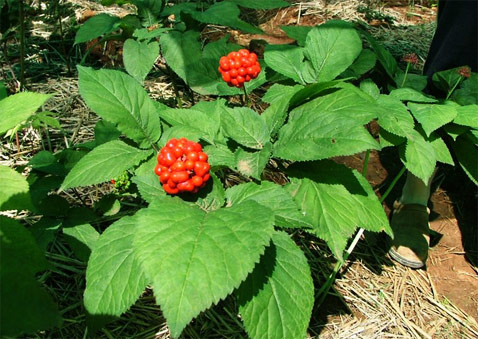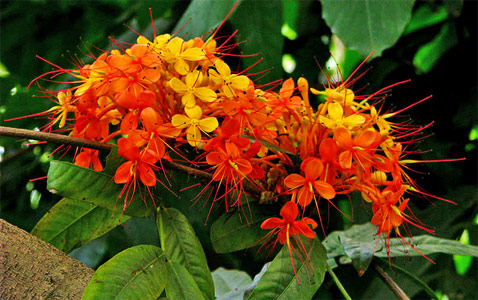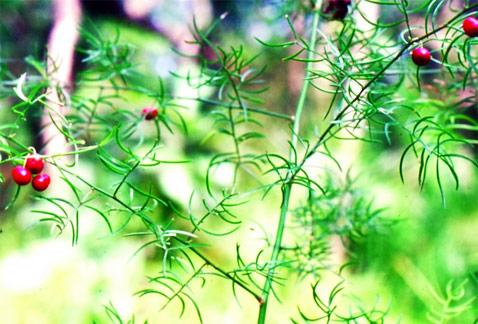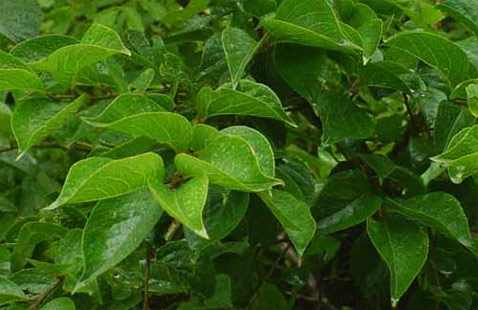Infertility is considered as the inability to conceive after having one year of unprotected sex or intercourse. Those women who can get pregnant but faces repeated miscarriages are also considered to be infertile. There are about 10 percent people affected by infertility in their reproductive age. Conversely, 15 percent couples face such issue. In about 40 percent of the infertility cases, the main cause of infertility is found in men and the other 40 percent of the cases involve the female factor and 10 percent of cases involve both the sexes.

The main causes of infertility are complex and tend to vary from one person to another or from one couple to another.
Male infertility
The most common infertility causes in men include asthenozoospermia or decreased motility of the sperm, azoospermia or no production of sperm cells and oligospermia or fewer productions of the sperm cells. There are times when sperms die or gets deformed before they reach egg.
Several herbs have also proved to be beneficial in the production of sperm.
Kapikacchu

Kapikacchu or scientifically known as Mucuna pruriens is considered one of the potent antioxidants that minimize the oxidative damage to sperm. It prevents the disruption in the membrane integrity of the sperms. Kapikacchu contains aphrodisiacal properties and is useful in oligozoospermia or inadequate sperm cells in semen. The treatment with Mucuna pruriens or Kapikacchu has shown increase in the sperm count. L-dopa separated from Kapikacchu has shown increase in the production of sperms. Kapikacchu prevents the male sterility and also acts as the nervine tonic.
Tribulus Terrestris or Gokshura

Protodioscin, an active ingredient of Tribulus Terrestris or Gokshura is converted to De-Hydro-Epi-Androsterone or DHEA. This is the precursor of the testosterone and thus helps to improve the sexual desire and production of sperm. Most studies suggest that the adequate amount of testosterone can help stimulate vaso-active substances production like nitric oxide, thereby resulting in the satisfactory erection.
Studies show that the use of Gokshura or tribulus terrestris can increase intra-cavernous pressure in penis and improves the sexual performance. Possibly this is due to the ability of the herb to increase the levels of testosterone or androgen and the release of the nitric oxide subsequently from the nerve endings and stimulating the corpus cavernosum. This result in improvement in the blood flow to penis and improve the functioning of musculature in penile area.
Ginseng

This particular herb helps to stimulate the immune system, improves male fertility and fights male impotence as well. It even enhances the sexual desire, increases the sperm count, testosterone levels and sperm mobility too.
Flaxseed Oil

This herb helps to increase the male fertility. The ingredients present in the oil helps in keeping your sperm healthy and helps in dealing the problem of impotence. This herb also includes phytoestrogens and hormone balancing lignans that assist in stabilizing the ratio of the progesterone-estrogen in women. It also plays a significant role in relieving the hot flushes linked with menopause and improves the uterine functions too.
There are many other useful herbs in Ayurveda like Orchis Mascula or Salammisri, Sida Cordifolia or Bala that have the fertility enhancing functions. Conversely, Sida cordifolia can be used in sexual inadequacy, general debility, nervous disorders etc. Tuberous root of the Orchis mascula includes nutritional value and can be used as an aphrodisiac and a tonic.
Female infertility
Ovulation disorder is considered the most common forms of infertility problem. Ovulation is essential for egg release from the ovary. A few signs that a woman is not ovulating normally include absent or irregular menstrual periods. The other causes related to infertility include endocrine disorders, blocked fallopian tubes, anatomical defects in the uterus and uterine fibroids etc.
There are several herbs used in Ayurveda for female infertility treatment.
Ashoka or Saraca Asoca

Saraca Asoca is a tree. This small evergreen tree contains oestrogenic compound. The bark of the tree contains this compound which has a stimulating effect on endometrium or in the inner layer of the uterus and the ovarian tissue. It is helpful in excessive menstrual bleeding or menorrhagia due to the leucorrhoea, uterine fibroids and internal bleeding. It has been well established for the effectiveness in dysmenorrhoea and menorrhagia.
Saraca asoca has stimulatory effects on ovarian tissue and can produce the oestrogen like effect which improves the repair of endometrium and stops the bleeding.
Kumari or Alor Barbadensis

Aloe barbadensis is a type of coarse perennial plant which consists of a short stem with the crowded leaves with spiny teeth on margins. The Aloes have been in use for several diseases like skin, digestive and also liver ailments. As per a study report, the use of Aloe barbadensis showed the in-vitro production of progesterone and oestradiol by the ovarian cells increased significantly.
Rasberry leaves

One of the popular fertility herbs, the raspberry leaves is a wonderful uterine tonic which contains high calcium content. The fertility improving action of the leaves is considered much more effective as and when consumed in combination with the red clover.
Red Clover Blossoms

This is another prominent herb which is found to be useful in establishing fertility. This herb contains high vitamin content that makes it valuable to uterus and the availability of the high protein constituent helps benefits the whole body. In addition to this, it also contains magnesium as well as calcium that assist in relaxing the nervous system and helps promote fertility. This herb possesses essential mineral needed by the glands and thus assists in the hormonal balance. The infusion of one or more cups of herb extract is suggested for many months.
Asparagus Racemosus or Shatavari

This spinous, multi branched under shrub bears several tuberous and succulent roots. This plant comprises of triterpene saponins that has phytoestrogen compounds. This particular plant is aphrodisiac, demulcent as well as galactagogue. A study shows the oestrogenic effects of the herb on female mammary gland as well as genital organs. Shatavari is also used for threatened miscarriage, infertility, menopausal and leucorrhoea problems. It nourishes ovum and improves the fertility.
Symplocos Racemosa or Lodhra

The symplocos racemosa is a type of an evergreen tree which includes yellowish and white flowers as well as purplish black drupes. The astringent bark is suggested in the treatment of uterine disorders and menorrhagia.
Anti-inflammatory properties are present in the stem bark of this evergreen tree. The Symplocos racemosa plays an important role in treatment of different female disorders. Studies show that symplocos racemosa can increase and stimulate the level of the reproductive hormones like LH or luteinising hormone and FSH or follicular stimulating hormone.



where it will find in delhi proper address